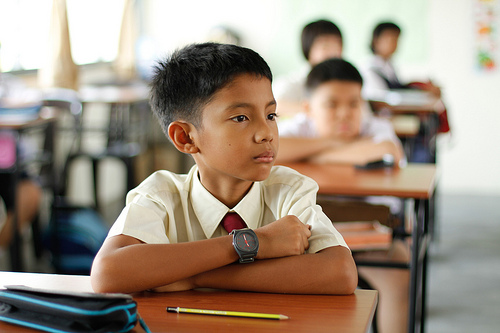The proposed Malaysian Education Blueprint 2013-2025 was met with protest recently from 1,100 non-governmental organizations (NGOs) represented by 2,000 members of various Chinese associations.
The protest was organized by the United Chinese School Committee’s Association of Malaysia (Dong Zong). Protesters, gathered in Kuala Lumpur, Malaysia, claim that the education plan lowers the status of vernacular schools. Dong Zong chairman, Yap Sin Tian voiced concern that “The blueprint discourages the use of Mandarin as a medium of instruction, which would be a great loss of their heritage.” Reports says that the blueprint would result in the closure of 2,219 religious schools at national and state levels. Some expect that 600,000 students will be affected by this policy if government decides to follow through in this policy.
Protesters are concerned that the resolutions passed at their gathering on July 28th might be ignored. Included in the resolution was the request that the government give recognition to the multi-racial, multi-lingual, multi-cultural, multi-religious background of the country; which, the current government proposed plan would ignore by adopting a policy would undermine by not supporting “a mother tongue education and national unity.” Furthermore, the convention urged the government to include in the Blueprint the National Education Policy based on the Education Act of 1957 formulating a “national education system that is acceptable to all the people.”
Deputy Prime Minister and Education Minister Tan Sri Muhyiddin refutes Dong Zong’s claims, saying that that the blueprint would not affect the status of the Chinese language in national education. He further added, “The government wants to uphold the status of Bahasa Melayu [Malay dialect] and to improve the quality of education in national school where Bahasa Melayu is used as the medium of instruction. What is wrong with that?” The government’s plan would be to turn the national school into “the most preferred school in the country.” The blueprint as a whole outlines the steps needed to transform the education system from 2013-2025. It aims to equip students, holistically, to prepare them for the competitive 21st century market.
Muhyiddin summed up the government’s intended goal for the Blueprint “to see all children in the country regardless of their race, be it Malay, Chinese, Indian, Orang Asli or the ethnic group in Sabah and Sarawak, to attend national school for the sake of racial unity.”
There are some reports saying that despite these protests, the National Education Blueprint 2013-2025 is set to begin on September 6. Dong Zong’s plans are to launch a campaign to bring the matter to the attention of UNESCO if the government ignores the protesters’ demands.
Creative Commons Love: Asian Development Bank on Flickr.com


















